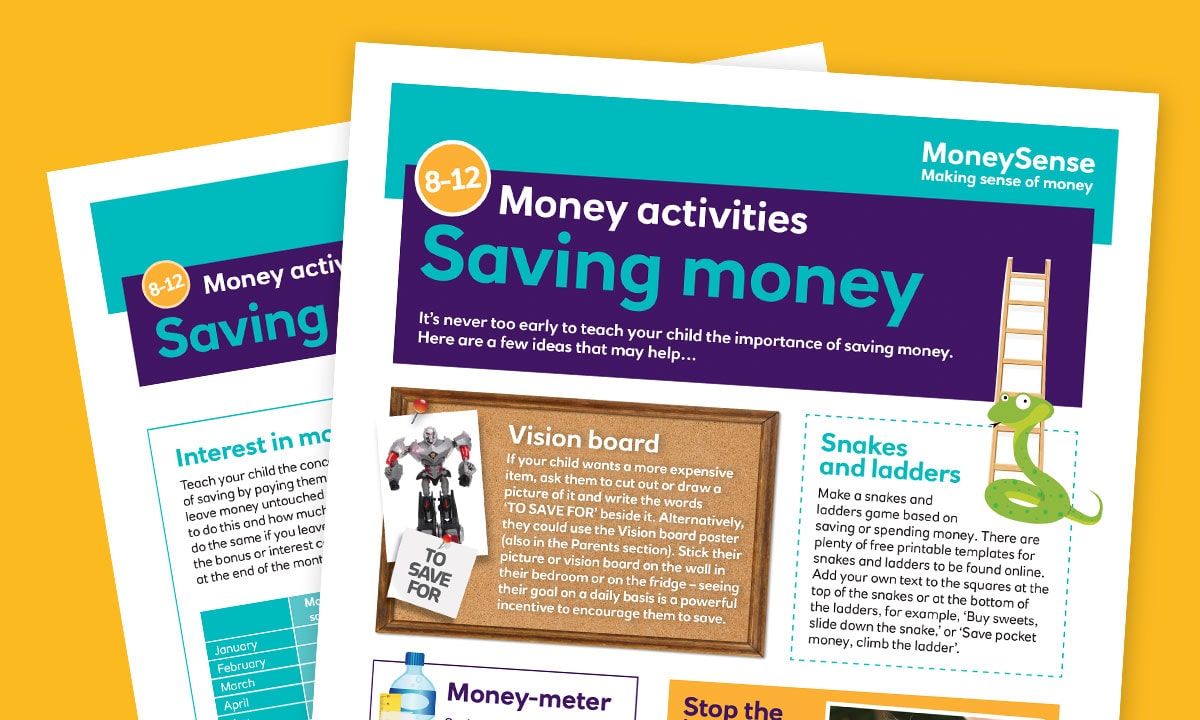Helping your teen get to grips with the money basics for university life
Wondering how to ready your child for the responsibilities of independent living? We asked Tom Allingham from Save the Student for his advice.

Flying the nest and starting life at university is an exciting prospect for most teenagers, but alongside all the adventure comes the responsibility and life admin associated with being an adult – and that includes being financially independent for the first time. So how can parents best prepare their teenagers for life at university, and the new monetary responsibilities they’ll undertake? We asked Tom Allingham – Head of Editorial at Save the Student, a website offering money advice to students – what tips he’d give parents.
1. Make sure you both understand student finances
“It might sound over simplistic, but the most important thing is to get a grip of the student finance system,” says Tom. Tuition fee loans are designed to cover tuition costs completely, but maintenance loans – the money that your teen will use for other living costs – are allocated according to your household income. If that is £25,000 a year or less, your child will be offered the maximum loan, but if it’s higher than that the loan they’re offered will be lower because “the government expect you (their parents) to make up the shortfall,” explains Tom. Use Save the Student’s Parental Contributions Calculator to discover what these amounts will be, then “have an open, honest discussion about how much money they’ll be getting and how much you’re able to contribute,” says Tom.
Likewise, help your teen understand their loan repayment terms so they don’t feel too daunted by their debt. “While the average student borrows approximately £50,000 over three years, at the moment the student loan terms mean they won’t repay anything until they’re earning more than £26,575 – and even then, they’ll only ever pay 9% of their earnings above that amount (plus interest). So, the repayments are manageable, and any remaining debt is wiped after 30 years.”
2. Teach them how to manage a budget
“It sounds boring, but the most fundamental and important thing you can do as a student is make a budget, because even with loans and any help your parents can offer you, the chances are you’re not going to be running with much surplus,” says Tom. This is especially important because maintenance loans are paid once a term, so it’s up to your teen to make them last.
Tom recommends using a budget tool, like the one available on the NatWest website. Alternatively, once you have jointly worked out how much money they’ll have to spend each month, encourage your teen to consider transferring their loan into a savings account as soon as they receive it, and then set up a direct debit to transfer their spendable ‘allowance’ each month – after all, it can be easier to resist spending if the money is harder to get to. To help your child get the hang of budgeting ahead of uni, why not set them a budget challenge? Just agree an allowance for spending over a month – then ask them to write down what money comes in and what goes out on a weekly basis to help them get used to documenting and controlling their own finances. And don’t forget to be clear with them that the starting balance won’t be topped up by you when they’re running low!

3. Encourage them to shop around
“In our National Student Survey, we consistently hear that students wish they had received better financial education,” says Tom – and that sentiment can also apply to household living costs. “The number one thing to remember with household bills like gas and electricity is don’t just stick with the same provider. When I moved into my flat at university I didn’t realise you could switch supplier, but you often end up paying over the odds.” Take the time to shop around and ensure you’re on the best tariff, there are plenty of comparison tools available online such as Go Compare.
4. Be savvy and do your research
There are various ways to be savvy when it comes to university living costs. Firstly, encourage your teen to take advantage of student offers. “The NUS student discount card – known as TOTUM – costs about £12 a year and gets you a discount in loads of places both on and offline,” says Tom. Also make sure your child is aware that students are exempt from paying council tax, so should they receive a bill in their rented accommodation they simply need to prove their student status. Likewise, says Tom, parents should check their home contents insurance policy. “Students might be covered by their parents’ contents insurance – often there'll be a rule that as long as the student goes home once every 90 days, for example, they will be covered by the parents’ insurance.”
5. Encourage them to think creatively
Some university courses discourage undergrads from taking part-time jobs during their studies – but for many students, supplementing their loan income will be essential. Alongside traditional part-time roles, though, there are other ways students can earn, from shopping through cash back sites to completing paid online surveys for companies. “It’s also worth considering doing some private tutoring, which can be really good money for simply relaying skills you already have, or even pet-sitting and dog walking which also have mental health benefits,” says Tom.
6. Keep the lines of communication open
Lastly, and most importantly, Tom suggests continuing these conversations throughout your child’s university experience. “Our research has found that around 50% of students have experienced mental health issues as a result of money concerns, and the best thing that parents can do to help is educate them and have open and honest conversations,” says Tom. “Universities also have mental health support services and money advisors, so the important thing to know is that [whatever a student’s money worries], you’re never alone.”
Image credits: iStock, Adobe Stock
Additional MoneySense resources

 Activities:
Activities: 
 Poster:
Poster: 



